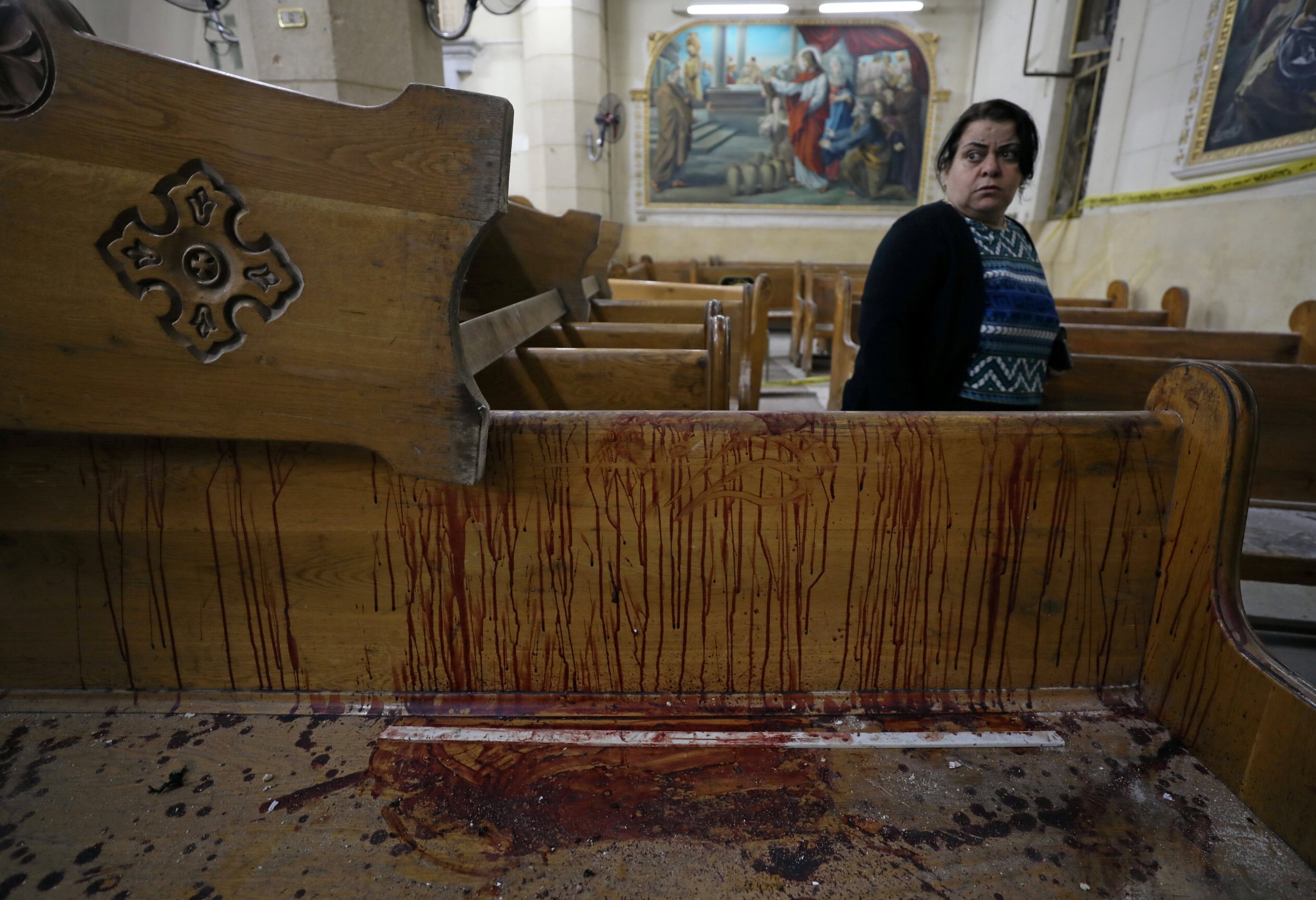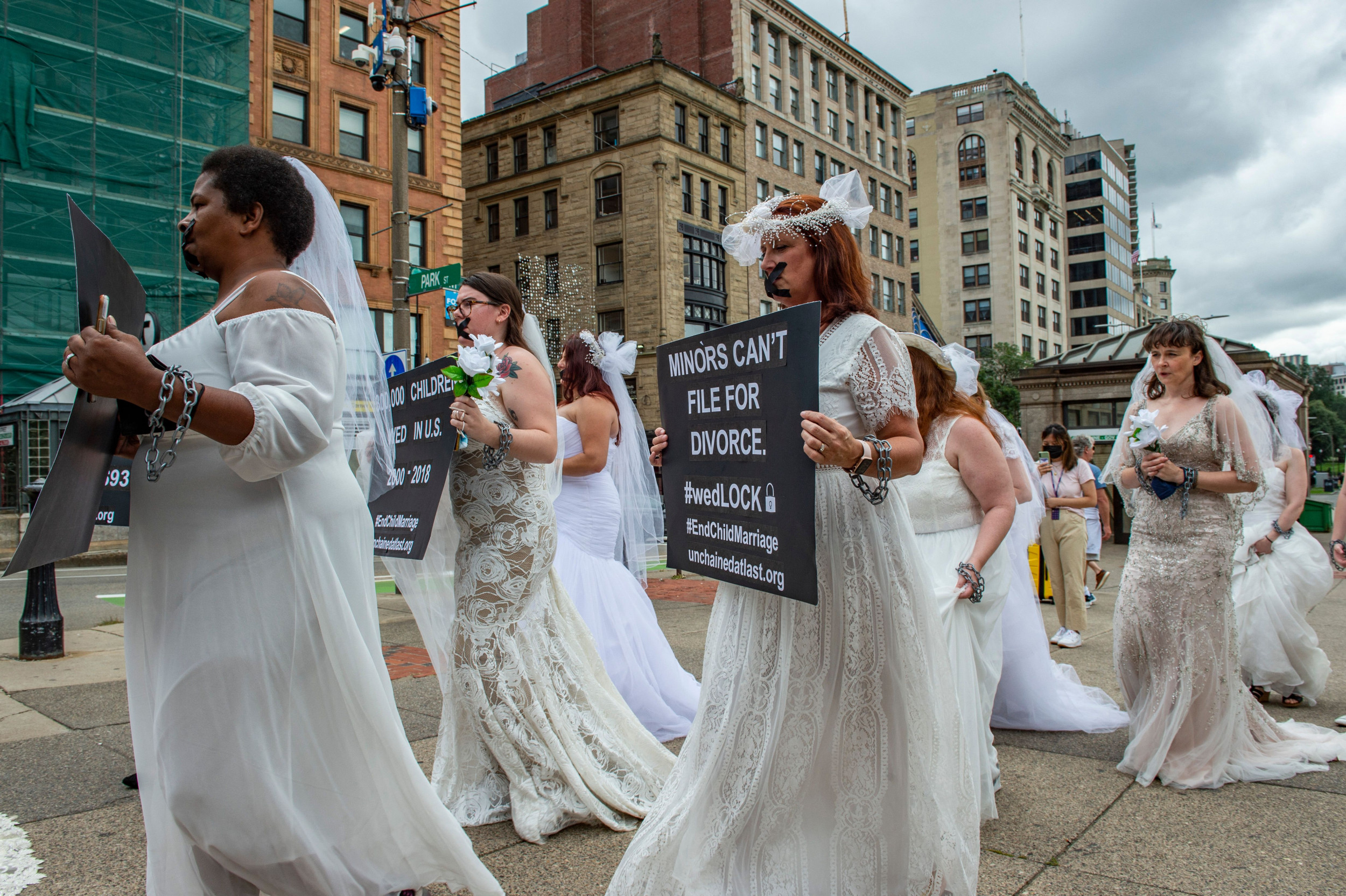
This article first appeared on the Atlantic Council site.
"My father and I still have headaches and a buzzing sound that has been in our ears since after the attack," said 27-year-old Ashraf Ramzy, a survivor of the explosion on St. George's Cathedral in the northern Egyptian city of Tanta that killed 29 worshippers on Palm Sunday.
"The microphone made a really intense noise. Then I was sure something was about to happen.... I even thought of leaving the prayer," he said. "It was 9:05 when the bomb exploded. I was standing next to my father behind a column, and we were 10 steps away from the blast."
Hours later, a suicide bomber detonated explosives at the St. Mark's Cathedral in Alexandria and killed at least 17 more people. The twin attacks injured dozens more, many of whom are still in hospitals.
Ramzy, who has grown up in Tanta and has been celebrating his holidays at the St. George's Cathedral, described the scene as "horrific...everyone was scattering around, looking for loved ones...looking for a wife or for a son. Anyone that was far from sight could have been dead."
Considering the bombing in December of St. Peter and St. Paul's church in Cairo, which had also killed at least 29 people, Ramzy said he had a feeling an attack such as this could take place.
In February, ISIS released a video claiming responsibility for the church attack in Cairo and threatening to further target Egypt's Christians. In March, the terrorist group killed at least seven Coptic Christians and displaced dozens more people from their homes in North Sinai's Arish.
Following the most recent Sunday attacks, President Abdel Fattah el-Sissi announced that a three-month state of emergency will be coming into effect. El-Sissi added that authorities will establish a Supreme Council to Combat Terrorism and Extremism. On Tuesday, Egypt's parliament unanimously voted to impose the state of emergency.
Commenting on the state of emergency, Ishak Ibrahim, a minority rights researcher at the Egyptian Initiative for Personal Rights, said that "the idea is that the solution isn't in an emergency law, already existing laws could be used properly to remove discriminatory policies and hate speech."
Related: Pope Francis will go ahead with Egypt visit despite deadly ISIS attacks
Ibrahim added that "when putting the most recent attacks into context of Egypt, part of the problem is that sectarianism, whether societal or institutionalized, is not taken seriously. The state is doing nothing to fight the roots of this discrimination."
Egypt's Ministry of Foreign Affairs posted on its official Facebook page a call on people to use the hashtag #United_On_PalmSunday to show solidarity, which prompted anger from social media users who were frustrated from the government's apparent inadequacy.
ISIS released a video claiming responsibility for the two Palm Sunday attacks, which Human Rights Watch called "the worst day of violence targeting Christians in Egypt's modern history."
"The most important issue and question here is that of security," Ramzy said. "Where is the security? Everyone has a role, and they have come short. Security [forces] should be held accountable before the terrorists themselves."
Ibrahim said that since December, "we can see that there has been a dangerous escalation in the intensity of the bombings and the intensity of which the Coptic Christians are being targeted."
Referring back to the video in which ISIS claimed responsibility, Ibrahim explained that ISIS "has called for an open battle against Egypt's Christians and it is possible we will continue [to see] a repetition of these incidents, especially if nothing is done differently [to combat them]."
Mina Thabet, who also a religious rights researcher at the Egyptian Commission for Rights and Freedoms, echoed similar thoughts, saying: "There's a huge question mark around the state's strategy in combating terrorism."
"From 2011 until now, these terrorist operations have moved from the borders and hot spots like Sinai to the heart of the capital and to the cities of the Nile delta. At the same time, there's an increase in human rights violations happening on the premise that this is for the fight against terrorism," Thabet said. "The attackers are only gaining more confidence and expertise, and developing ways by which to kill more victims each time." Thabet added that this indicates that the state's current strategies are unsuccessful and ineffective.
Related: Under Trump, U.S. is no longer a champion of human rights
According to a Kuwaiti newspaper, one of the suspects in the Alexandria bombing was extradited from Kuwait for proven links to ISIS, but for unclear reasons Egyptian security released him once he was back in Egypt.
"The state," Ibrahim explained, "has a responsibility to protect its citizens." However, "There is a clear gap. There's clearly something faulty if in the past six months we have seen three bombings and Christians have been displaced from their homes in Arish."
Thabet also suggested that there needs to be a comprehensive change in the strategy used to combat terrorism. "First, we have to highlight that human rights violations will not achieve any form of security."
According to Thabet, this comprehensive strategy "should ensure that the overall environment isn't one of fertile ground for radicalization. This means acknowledging the discrimination that exists. It means ensuring social justice, a fair judicial system, a functioning educational system and religious reform."
"This doesn't mean putting religion under more control, because this is what has been happening for the past 30 years, and it has only created more terrorism. There needs to be more respect for people's freedom of thought," he said, citing as an example the case of Islam el-Behiry, a TV host who had been detained on charges of blasphemy.
"We need an environment that is more open towards different ways of thinking, and the government needs to understand this," Thabet said. "Now, Christians are the primary targets [of ISIS], but no one knows who is next."
On Tuesday, Upper Egypt's Minya Eparchy announced that Easter celebrations will be canceled "due to the current circumstances the country and the Church are witnessing." The statement added that the Easter mass will be limited to prayers.
For Ramzy, who has been frequenting Tanta's hospitals all week visiting his injured friends and relatives, the future is uncertain. "What can we do? Are we expected to stop praying? We're not going to stop praying."
Jihad Abaza is a freelance journalist and anthropologist in Egypt.
Uncommon Knowledge
Newsweek is committed to challenging conventional wisdom and finding connections in the search for common ground.
Newsweek is committed to challenging conventional wisdom and finding connections in the search for common ground.
About the writer
To read how Newsweek uses AI as a newsroom tool, Click here.








